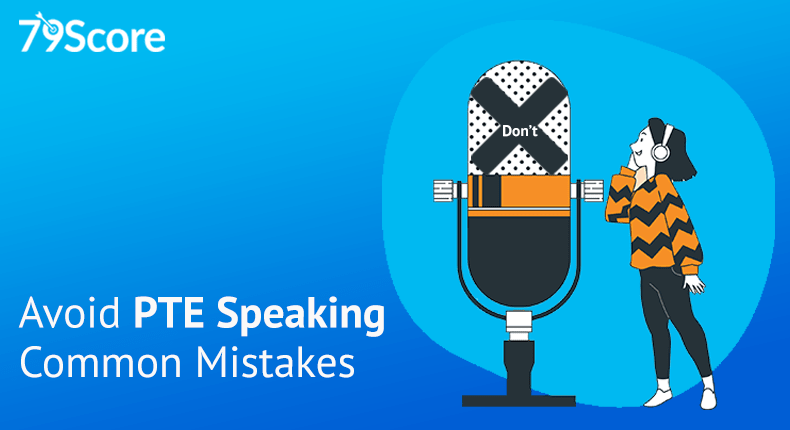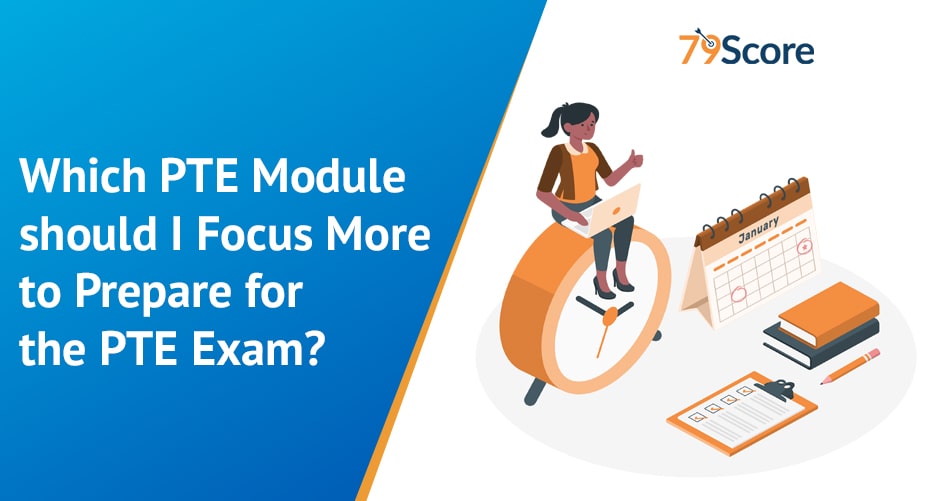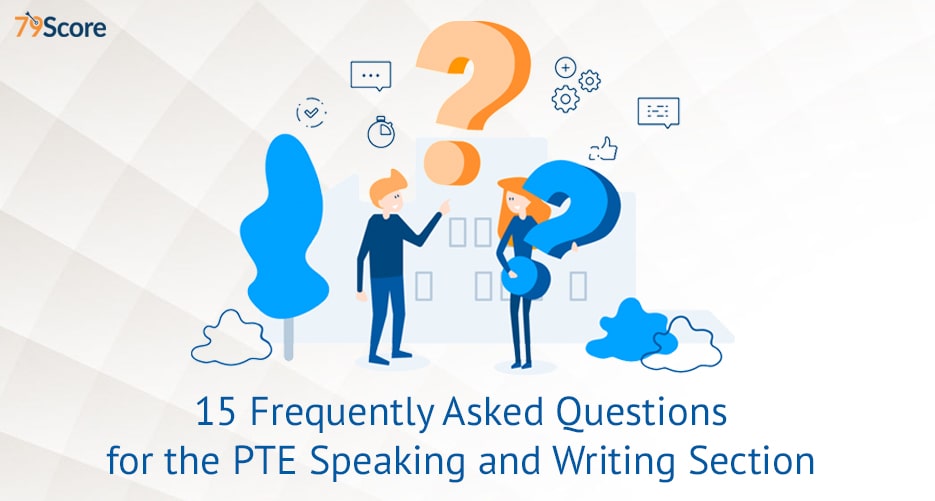PTE read aloud question type comes first in the exam for the speaking section. Looking at the question prompt type, all students feel easy at first. But, when it comes to the exam day it brings down your confidence when unfamiliar words are put to pronounce. In this guide we will provide you PTE Read Aloud tips and tricks. First, let’s see what PTE read aloud question type demands on the exam day: You will get 30-40 seconds to prepare before the recording starts. Once the beep sound is played, you can start reading the passage loud and clear. Remember don’t start speaking before the beep sound is played, as…
79 Score Blogs
-
-
Avoid PTE Speaking Common Mistakes
The PTE speaking section always creates fears in the minds of test-takers, especially for non-native speakers. The First thing I would suggest is give multiple PTE mock test. It is often seen that PTE aspirants perform well in all three sections, and are unable to crack the speaking section. Since PTE is a computer-based exam, each task can be prepared if proper techniques are followed. There are plenty of things you can do to improve your English language skills and subsequently increase your PTE speaking score. Let’s look at some things that should be completely avoided during the PTE speaking section. The Position of the Microphone: Before diving into the…
-
Which PTE Module should I Focus More to Prepare for the PTE Exam?
PTE exam is the key to success in any sense. It can provide you with quick access to global education and career opportunities. However, this will only happen when you get success in this exam. Designed to testify four kinds of English skills, making it through the exam is not as easy as it seems. For some, it is not less than touching the skies. While each section demands a certain kind of commitment and dedication, few sections are more demanding. If you a PTE aspirant, you must know what demands how much. You must be aware of the difficulty level of the exam module to plan accordingly. This post…
-
15 Common Questions Related to PTE Speaking and Writing Section that All Aspirants have in their Mind
If you have plans to study or work in Australia, PTE Academic can be your magic pill! While any part of the test can give you goosebumps, the speaking and writing section especially raises a lot of questions. Here are the top 15 frequently asked questions for the PTE speaking and writing section: 15 FAQs – PTE Speaking and Writing Section Are speaking and writing two different sections? No, Speaking and Writing are covered under one section. What is the total duration allotted to the Speaking and Writing section? The Speaking and Writing section is approximately 54-67 minutes long. In the speaking task, should I speak fast to score more?…
-
10 Easy-to-adopt Habits That will Improve your PTE Speaking Module Score Significantly
The PTE Speaking and Writing is the first section of the PTE exam and its duration can range from anywhere between 54 to 67 minutes. The section has a total of seven tasks that need to be completed in the said time. Just before the section, you will also have to record an introduction for yourself. Even though the personal introduction is not marked, it should be taken seriously since it is sent with the scores to the universities. The speaking and writing module is an important section of the test and its scores can mean a lot to the total scores of the PTE test. A few good habits…
-
PTE Repeat Sentence Tips & Tricks For Speaking Section
The PTE is a computer-delivered exam, which tests the ability of a non-native speaker. PTE exam is designed so meticulously that all the aspects of learning the new language are covered. Among them, a PTE repeat sentence is one of the questions, which tests your ability of how you adapt to the language and how well you understand the language. Studies show that the ability to repeat a sentence tells how an individual is learning that particular language. One can mimic up to 3 to 4 words. But it is really hard to mimic the sentence and repeat it in the exact format if they don’t understand the language. For…





